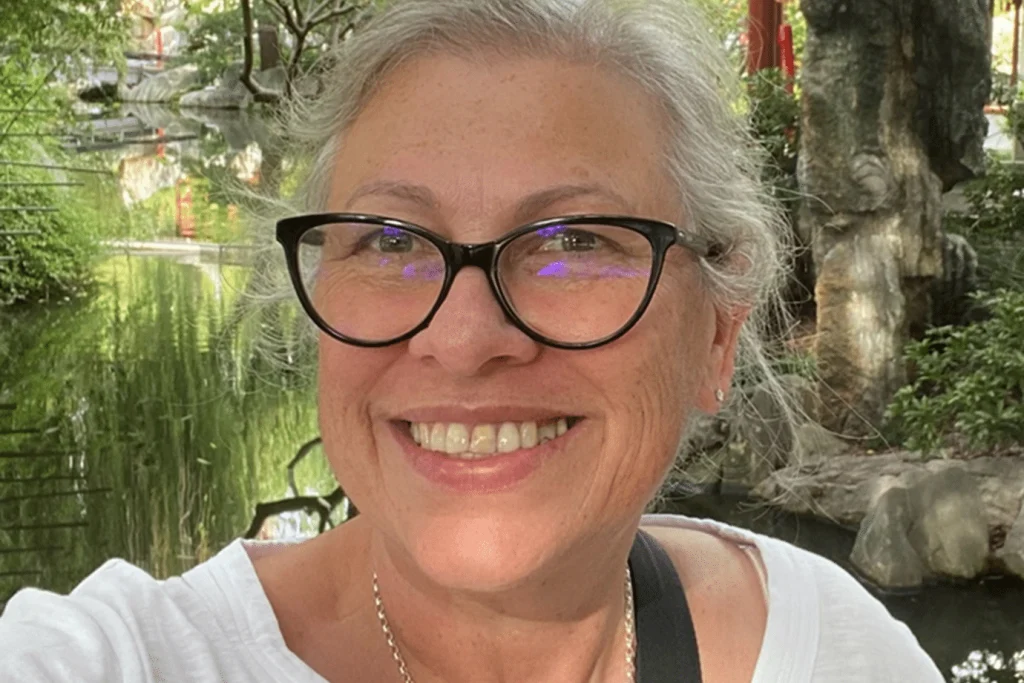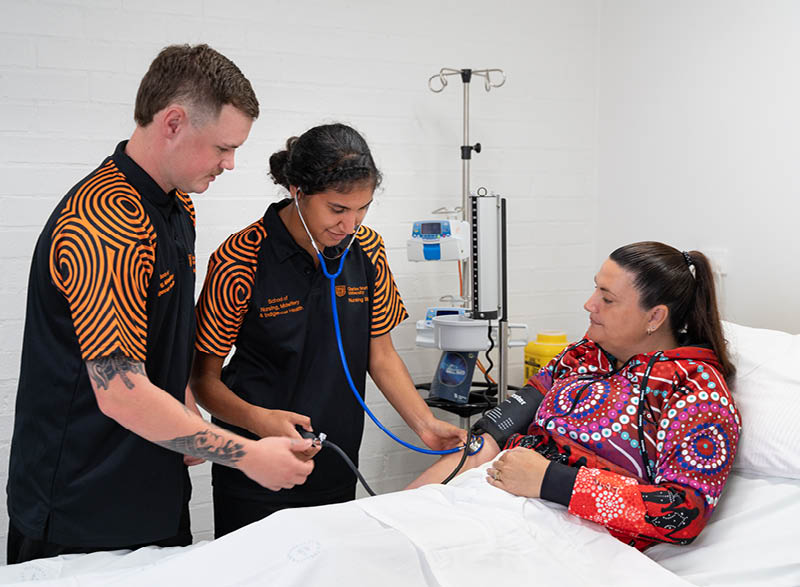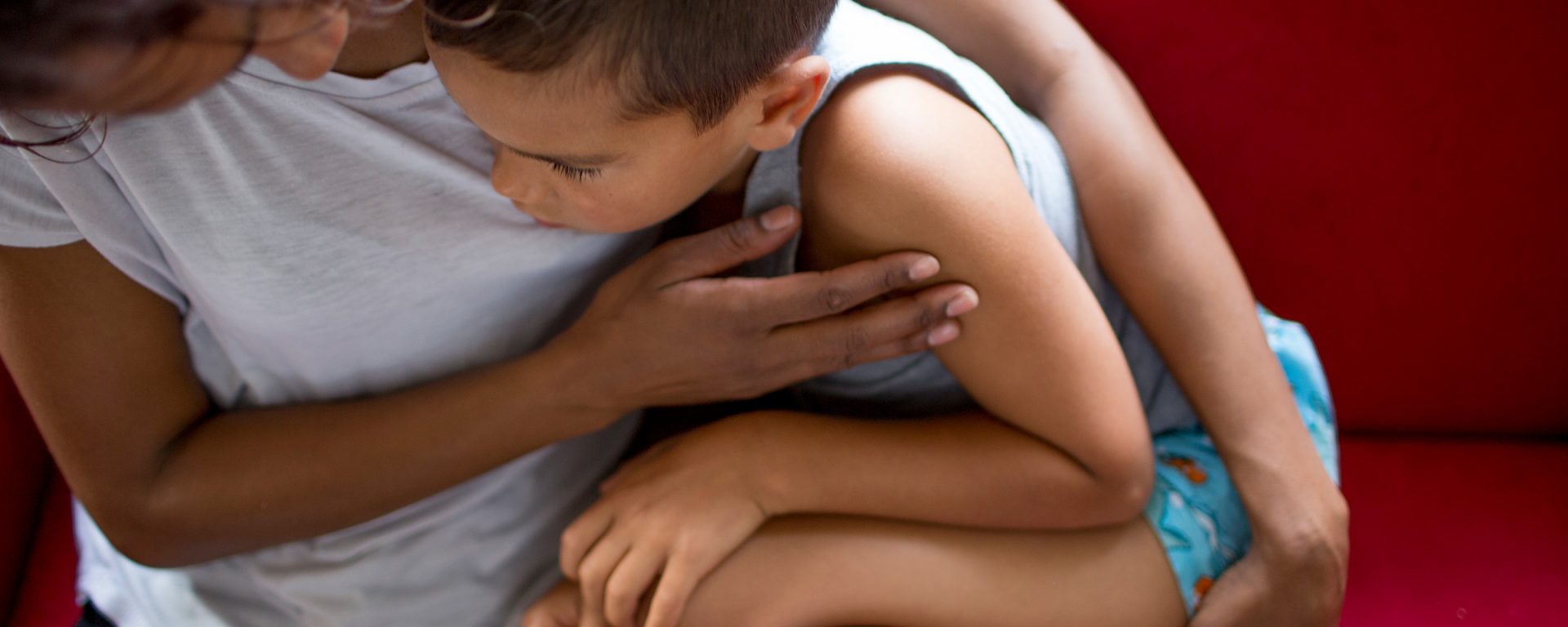In the heart of a thriving country town renowned for its bustling markets and scenic gardens, Lynette Bullen gets ready to go to work and inspire Australia’s next generation of healthcare workers. The proud Wiradjuri woman from Orange, New South Wales, has spent three decades in the health sector. She has dedicated much of her efforts towards First Nations women, children and families trying to overcome the clutches of drug and alcohol addiction.

This article was first published by Women’s Agenda.
Lynette was also awarded the Western Health Research Network Aboriginal Researcher of the Year Award in Dubbo in 2023.
Today, she splits her time between working as a senior clinician in an involuntary drug and alcohol treatment unit and lecturing in medicine at Charles Sturt University.
In 2021, the Australian Professional Society on Alcohol and other Drugs, an internationally-recognised organisation for experts in this field, named her ‘Clinician of the Year’.
Following her family’s First Nations women

Born into a family of healthcare professionals, Lynette says enrolling to become a nurse felt natural.
“My mother started her nursing when she was 17 as a psychiatric nurse here in Orange. She moved from Warren, and it was a way for her to get out of a small country town. My two older sisters were both nurses. One of my nieces now works as a nurse. And one of my other nieces is in charge of audits in one of the health districts.
“It was certainly a family trait for the women.”
Working in healthcare was no surprise for Lynette. However, her venture into caring for people affected by drug and alcohol disorders was unexpected.
It wasn’t until she entered this space that she uncovered her true calling.
“I led a very sheltered life, so I didn’t know about drugs at all.”
Despite how confronting the work was, Lynette knew this was an area she needed to work in.
Working with First Nations women

In communities around Australia, the devastating impacts of multi-generational trauma continue to surface through high rates of substance use disorders.
A report by the Australian Institute of Health and Welfare states that mental and substance use disorders are the leading cause of disease burden for First Nations people, with a significant amount experiencing high levels of psychological distress.
The harsh reality of this hit Lynette once she began working for a service to support mothers and babies through drug and alcohol dependency.
“Seeing the effect on children, it was heartbreaking. I thought if I could provide some stability for the children while they were there with their mothers. Not to be so much a role model, but sort of show and do for the parents, like giving them the skills to be able to set boundaries with their children.”
Lynette’s gentle approach helped the First Nations women and men she was working with feel safe to open up about what had happened to them.
“The women started to talk to me about their drug use. I think they felt that I was a non-threatening person because I was working with the children and they saw me, as I suppose, a nurturer so they would come and talk to me.
“And I thought, Oh God, I better go and learn something about it.”
Moving into academia
Lynette took on more study to equip her with tools to better support the people she was working with.
A job that initially felt quite “overwhelming” turned into a lifetime pursuit of finding answers and better solutions to improve health outcomes for people living with trauma in remote and regional communities.
“The area that I work in, in drug and alcohol research, has certainly opened up a lot of doors. Like working with Charles Sturt. I never dreamed that I would be working at a university.”
In her role with Charles Sturt’s School of Rural Medicine, Lynette works closely with fourth-year students. She helps them investigate various research topics.
“Research can be very tricky and the process can be quite overwhelming at times – especially going through ethics. I [encourage] students that research is hard but it’s also very rewarding. What you’re researching can impact people’s lives in a positive way.”
Lynette has seen this first hand.
Using technology to help

One of the research projects she began working on prior to joining Charles Sturt was the Grog App. This is a landmark initiative to more accurately track alcohol disorders. And put transformative health information into the hands of First Nations people.
“The app is a screening tool for Indigenous people to measure their drinking outcomes.
“What I like about it is that at the end of the app survey, it gives the participant a brief intervention.”
Lynette finds it exciting that the app lets people walk away with more knowledge of their own or a loved one’s drinking behaviour.
“So not only are we sort of showing people that, you know, your drinking rates are at a hazardous and harmful level, but this is what you can do about it.
“It’s a great tool and it’s a validated tool. One that we know works. So we’re doing some more work on how we can implement that into primary health services.”
As exciting as the outcomes are for the app, Lynette says the project will take many years before it’s used more widely around Australia.
“It’s not quick. This project will be over a five-year period from the time we started to when we write it all.”
Making progress
This is another of the many lessons Lynette hopes to impart to the new group of doctors and researchers she’s working with at Charles Sturt.
Like many other champions for change in the healthcare space, Lynette knows that exciting progress happens in small steps taken over a long period of time.
“[It’s about] how we can improve services for our mob. I’ve had many roadblocks along the way [but] it’s not just a job for me. It’s something that I have an invested interest in.
“There is high burnout in any sort of health industry, whether it’s private or public. That’s because we’re all here wanting to see change. And I think it’s really important that people do look after themselves. Go and have a lunch break, go for a walk, take that time, because we do need to rejuvenate ourselves.
“Sometimes, slow and steady wins the race.”
Help people thrive
Whether you want to work with First Nations women, rural communities, city folk or people in need anywhere across the world, the best place to start is a Charles Sturt medicine or health degree.


You must be logged in to post a comment.